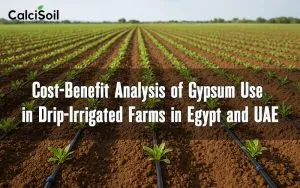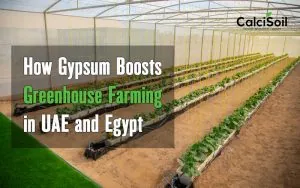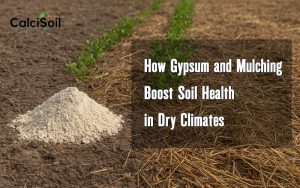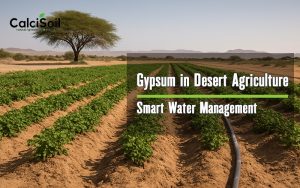
Agricultural gypsum, often known as calcium sulfate dihydrate, is a versatile mineral that has gained popularity in soil management and crop production. As farmers and gardeners explore its benefits, many questions arise about how and when to use gypsum effectively. Here, we address some of the most frequently asked questions about agricultural gypsum to help guide its use and clarify its role in sustainable agriculture.
1. What is Agricultural Gypsum?
Agricultural gypsum is a naturally occurring mineral composed of calcium sulfate dihydrate. It is commonly used to improve soil structure, provide essential nutrients, and enhance soil health. Gypsum differs from lime, as it does not affect soil pH. While lime raises soil pH, gypsum primarily supplies calcium and sulfur without significantly changing soil pH, making it ideal for various soil types.
2. Why Should I Use Gypsum in My Soil?
Gypsum offers numerous benefits, particularly for soils that are compacted, high in clay content, or sodic (high in sodium). It helps improve soil structure by breaking down compacted layers, which allows for better water infiltration and root growth. Additionally, gypsum adds calcium and sulfur—both essential for plant growth. Calcium strengthens cell walls and improves fruit quality, while sulfur is necessary for chlorophyll formation and protein synthesis. Gypsum also aids in displacing sodium in sodic soils, reducing toxicity to plants.
3. How Does Gypsum Improve Soil Structure?
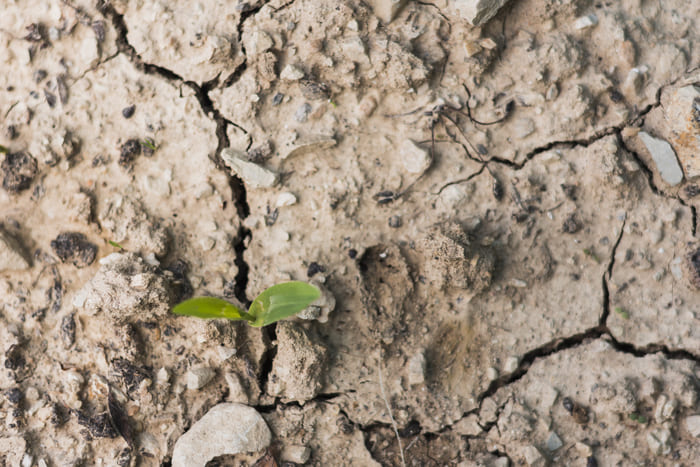
One of the primary benefits of gypsum is its ability to improve soil structure. In clay soils, gypsum promotes flocculation, a process where soil particles aggregate to form larger clumps. This results in improved soil porosity, allowing for better water penetration and root development. In sodic soils, gypsum replaces sodium ions with calcium ions, helping to prevent the soil from dispersing and becoming impermeable. The result is more aerated soil that supports root systems and microbial activity.
4. Does Gypsum Affect Soil pH?
Gypsum has a neutral effect on soil pH. Unlike lime, which is used to raise soil pH, gypsum does not alter pH levels because it contains calcium sulfate instead of calcium carbonate. This neutrality is particularly beneficial for farmers working with soils that already have an optimal pH range, as gypsum can be applied without risking the balance of acidity or alkalinity.
5. When Should Gypsum Be Applied?
The best time to apply gypsum varies depending on the soil type and the specific issue being addressed. For instance, to alleviate soil compaction or address sodium-related issues, gypsum can be applied before planting season to allow adequate time for soil conditioning. If gypsum is being used as a nutrient supplement, it can be applied mid-season to provide a sulfur and calcium boost. Many growers choose to apply gypsum in fall or winter so it can integrate into the soil by spring.
6. How Much Gypsum Should I Use?
The appropriate gypsum application rate depends on soil testing and the particular soil conditions. Generally, 1,000 to 2,000 pounds per acre is a common rate for improving soil structure, while nutrient-deficient soils may require lower rates of 300 to 400 pounds per acre. Conducting a soil test is essential before application to determine the soil’s calcium, sulfur, and sodium levels. Over-application can be costly and may have unintended effects, so it is always recommended to follow soil test recommendations.
7. Is Gypsum Safe for All Types of Soil?

Gypsum is safe and beneficial for a wide range of soil types, including clay, loam, and sandy soils. However, it is especially helpful for clay and sodic soils. While gypsum does not harm soils with adequate calcium and sulfur, it may be unnecessary in soils that already have high levels of these minerals. In such cases, adding gypsum may not bring significant benefits and could even lead to nutrient imbalances over time.
8. Can Gypsum Be Used in Organic Farming?
Yes, gypsum is permitted in organic farming as long as it is naturally sourced. Unlike synthetic fertilizers, gypsum is a mineral product and is considered acceptable by most organic certification programs. Its ability to improve soil structure and provide essential nutrients without affecting soil pH makes it a valuable addition to organic soil management practices.
9. How Does Gypsum Help with Water Management?
Gypsum improves soil permeability, which allows water to move more freely through the soil profile. This is particularly beneficial in areas prone to heavy rainfall, as it can help prevent waterlogging. In areas with limited rainfall or drought conditions, gypsum helps water penetrate more deeply into the soil, reducing runoff and increasing moisture retention. For regions affected by irrigation with saline water, gypsum aids in preventing salt buildup in the soil.
10. What Crops Benefit the Most from Gypsum?
While gypsum can benefit almost any crop, certain crops respond particularly well to its use. Root crops like carrots and potatoes benefit from improved soil structure, which allows roots to grow more easily. Additionally, crops such as alfalfa, corn, and soybeans, which have high sulfur requirements, gain from gypsum’s sulfur content. Gypsum is also advantageous for fruit and vegetable crops, where calcium deficiency can lead to issues like blossom-end rot in tomatoes and peppers.
11. Are There Any Downsides to Using Gypsum?
While gypsum has many benefits, there are some considerations to keep in mind. Over-application can lead to nutrient imbalances, especially for magnesium, as excessive calcium can interfere with magnesium uptake. Additionally, applying gypsum in sandy soils that already have sufficient calcium and sulfur levels may not yield significant results. Regular soil testing can help ensure gypsum is used effectively without causing unintended issues.
Conclusion
Agricultural gypsum is a valuable tool for improving soil health, structure, and nutrient availability. Its ability to provide calcium and sulfur without altering soil pH makes it suitable for a variety of soils and crops. However, to make the most of gypsum’s benefits, it’s essential to understand the specific needs of your soil through testing and to apply gypsum at appropriate rates and times. By addressing these frequently asked questions, farmers and gardeners can use gypsum more effectively, supporting sustainable and productive agricultural practices.

